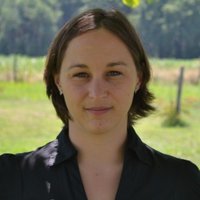Tissue and Organ bioengineering
- Duration: 7 weeks
- Effort: 35 hours
- Pace: ~5 hours/week
- Languages: English and french
Description
Tissue and organ bioengineering is a new fascinating chapter of research in life sciences. It is a big challenge for academic researchers and for entrepreneurs since major benefits are forecasted.
It is a multidisciplinary work gathering cell biologists, developmental biologists, engineers, physicists, chemists, mathematicians and computer scientists.
Differentiation of stem cells into mature and functional cells, development of scaffolds onto which cells can stick, divide and differentiate, in vitro recapitulation of organogenesis, layer by layer bioprinting of tissues are the technologies that will allow to build simple or more complex tissues, organoids and fully equipped organs available for transplantation. Besides, tissue engineering leads to the construction of organ-on-chips which have been boosted by the development of microfluidic technology and with potentially wide applications in predictive toxicology, drug metabolism and micro physiology, but also leads to the development of external bio artificial organs such as lungs or livers that can allow sustaining life during an acute phase of illnesses.
This MOOC is divided in five chapters :
- The first chapter deals with cells, biomaterials, scaffolds and modeling.
- The second chapter is dedicated to the techniques of biofabrication: micro-patterning, bioprinting and recapitulation of organogenesis.
- The third chapter develops the technologies of chips and of spheroids.
- In the fourth chapter the applications of bioengineering for the skin, trachea, esophagus, bones and ultimately the liver are described.
- The fifth chapter is dedicated to external bioartificial organs but also to the regulatory aspects of tissue and organs bioengineering as well as to the perspectives in terms of industrial developments.
Teachers of this MOOC are physicians, academic scientists and entrepreneurs involved in bio-fabrication
Format
This MOOC is organized in 5 weeks. Each week is composed of 4 to 6 sequences. In each sequence, you find a 10 minute video and 2 multiple choice questions to help students check their understanding. The videos are in English subtitled in English.
Two or 3 hangouts will be organized during the course.
Prerequisites
This MOOC is aimed at people interested in understanding the new processes of tissue and organ bioengineering.
A bachelor of science is recommended to attend this MOOC.
Assessment and certification
All the tests are in English. A weekly evaluation is performed using about 10 MCQs and, at the end of the course, a final evaluation is performed with 30 MCQs.
Course plan
Week 1: Materials
- Rational, concepts, challenges and applications of tissue engineering
- Cells for organ bioengineering
- Scaffolds and cells
- Modeling biological tissues and cells
Week 2: Technologys
- Guiding cellular self-organization using micropatterning technologie
- Guiding cellular self-organization using bioprinting technologies
- Extrusion and droplet-based bioprinting
- Laser-assisted bioprinting
- Building a liver in vitro: can we recapitulate morphogenesis?
Week 3: Chips and Spheroids
- Organ on chips using microfluidics technology
- Organs-on-chip and other innovative approaches for drug toxicity screening
- Advanced Screening Pipelines for Stem Cell-Based Assays
- Hepatic Spheroids
- Encapsulated 3D Micro-tissues
Week 4: Bioconstruction of tissues and organs
- Skin engineering
- In vivo airway tissue engineering
- Esophageal tissue engineering
- Bone tissue engineering
- Bioconstruction of the liver
Week 5: External bioartificial organs, Regulatory issues, Market
- Paracorporeal Artificial Lung
- External Bioartificial Liver
- Regulation of engineered tissues
- Organs-on-Chips Technology: Micro engineered environments for human-relevant research
- Economics of bio-construction
Course team
Jean-Charles Duclos-Vallée
Categories
Dominique Franco
Categories
Marie-Noëlle Labour
Categories
Organizations
License
License for the course content

Attribution-NonCommercial-ShareAlike
You are free to:
- Share — copy and redistribute the material in any medium or format
- Adapt — remix, transform, and build upon the material
Under the following terms:
- Attribution — You must give appropriate credit, provide a link to the license, and indicate if changes were made. You may do so in any reasonable manner, but not in any way that suggests the licensor endorses you or your use.
- NonCommercial — You may not use the material for commercial purposes.
- ShareAlike — If you remix, transform, or build upon the material, you must distribute your contributions under the same license as the original.
License for the content created by course participants

Attribution-NonCommercial-ShareAlike
You are free to:
- Share — copy and redistribute the material in any medium or format
- Adapt — remix, transform, and build upon the material
Under the following terms:
- Attribution — You must give appropriate credit, provide a link to the license, and indicate if changes were made. You may do so in any reasonable manner, but not in any way that suggests the licensor endorses you or your use.
- NonCommercial — You may not use the material for commercial purposes.
- ShareAlike — If you remix, transform, or build upon the material, you must distribute your contributions under the same license as the original.




